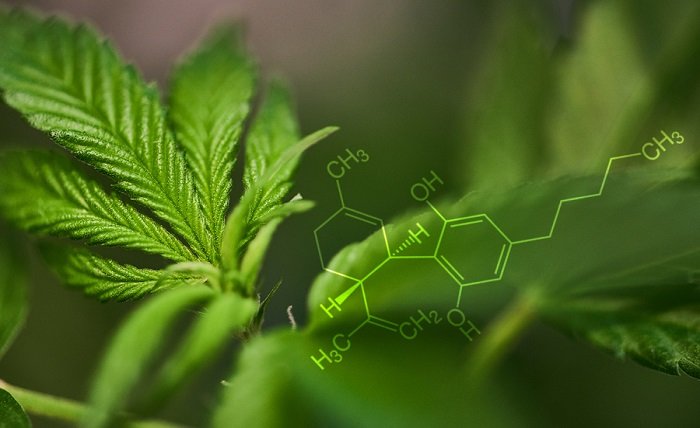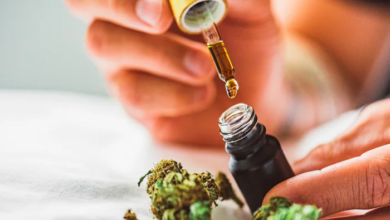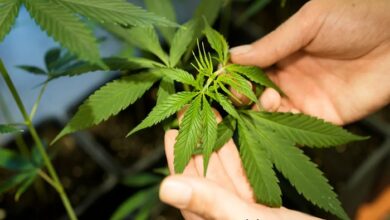CBD Full Form: What Does It Mean and Why Is It Popular?

Benefits of CBD
CBD has been studied for its effects on a wide range of conditions and symptoms, such as epilepsy, anxiety, pain, inflammation, insomnia, depression, neurodegenerative disorders, skin problems, and more. The most conclusive evidence for CBD’s effectiveness is for its use in treating some rare and severe forms of childhood epilepsy, such as Dravet syndrome and Lennox-Gastaut syndrome. CBD has been shown to reduce the frequency and severity of seizures in these patients, and it has been approved by the FDA as a prescription drug under the brand name Epidiolex. CBD may also help with other types of epilepsy, as well as other neurological conditions such as multiple sclerosis, Parkinson’s disease, Alzheimer’s disease, and schizophrenia.
CBD may also have benefits for mental health disorders, such as anxiety and depression. CBD may act on the endocannabinoid system, which is a network of receptors and molecules that regulate various physiological and psychological processes in the body. CBD may interact with the endocannabinoid system to modulate mood, stress, memory, learning, and emotion. CBD may also affect serotonin receptors, which are involved in regulating happiness and well-being. CBD may have anti-anxiety and antidepressant effects for people with generalized anxiety disorder, social anxiety disorder, post-traumatic stress disorder, obsessive-compulsive disorder, and panic disorder.
CBD may also have benefits for pain management and inflammation. CBD may have analgesic and anti-inflammatory properties that can help with chronic pain conditions such as arthritis, fibromyalgia, neuropathy, migraine, and cancer pain. CBD may also help with inflammatory skin conditions such as acne, eczema, psoriasis, and dermatitis. CBD may work by inhibiting the transmission of pain signals in the nervous system and reducing the production of inflammatory cytokines in the immune system.
CBD may also have benefits for sleep quality and quantity. CBD may help with insomnia by improving the onset and duration of sleep. CBD may also help with sleep disorders such as narcolepsy and restless legs syndrome by regulating the sleep-wake cycle. CBD may work by affecting the levels of melatonin, a hormone that regulates the circadian rhythm. CBD may also help with daytime alertness and performance by reducing daytime sleepiness and fatigue.
How to Use CBD
CBD can be used in various forms depending on the preference and purpose of the user. Some of the common forms of CBD are:
- Oils: CBD oils are liquid extracts that can be taken orally or sublingually (under the tongue). They can also be added to food or drinks or applied topically to the skin. CBD oils are usually made with a carrier oil such as coconut oil or hemp seed oil to improve absorption and bioavailability. CBD oils come in different concentrations and flavors to suit different needs and tastes.
- Capsules: CBD capsules are softgels or pills that contain a measured dose of CBD oil. They are easy to swallow and convenient to use. They offer a discreet and consistent way to consume CBD without any taste or odor. However, they may take longer to take effect than oils or vapes due to the digestion process.
- Edibles: CBD edibles are food or drink products that are infused with CBD oil. They can include gummies, chocolates, cookies, candies, teas, coffees, and more. They offer a tasty and enjoyable way to consume CBD without any hassle or mess. However, they may also take longer to take effect than oils or vapes due to the digestion process. They may also have variable potency depending on the quality and quantity of the ingredients used.
- Vapes: CBD vapes are devices that heat up CBD oil or e-liquid and produce vapor that can be inhaled. They can include vape pens, cartridges, pods, or tanks. They offer a fast and efficient way to consume CBD without any combustion or smoke. They may also have higher bioavailability than oils or edibles due to the direct absorption into the lungs. However, they may also have some risks and drawbacks such as potential lung damage, device malfunction, or contamination of the products.
- Creams: CBD creams are topical products that are applied to the skin. They can include lotions, balms, salves, gels, or patches. They offer a targeted and localized way to consume CBD without any systemic effects. They may also have additional ingredients such as essential oils, herbs, or vitamins to enhance the benefits and effects of CBD. However, they may also have lower bioavailability than oils or vapes due to the skin barrier and metabolism.
Conclusion
CBD full form is cannabidiol, which is one of the many cannabinoids found in cannabis plants. CBD has many potential health benefits and applications for various conditions and symptoms, such as epilepsy, anxiety, pain, inflammation, insomnia, depression, and more. CBD can be used in various forms, such as oils, capsules, edibles, vapes, creams, and more. CBD is generally safe and well-tolerated by most people, but it may also have some side effects and interactions with other medications or supplements. Therefore, it is advisable to consult with a doctor before using CBD, especially if you have any medical conditions or are pregnant or breastfeeding




